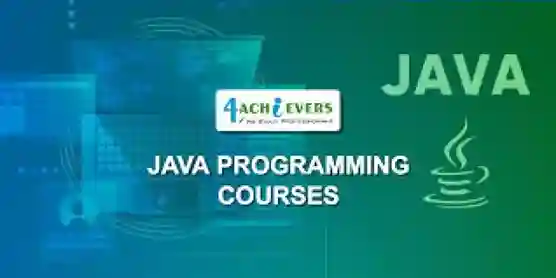Ever wonder why Java is still a preferred tool for developers? Its strong security features and complete API enable safe and effective application development; its platform independence lets programs run on any system without change. Furthermore, perfect for managing challenging, performance-sensitive applications are Java’s automated memory management and multithreading powers. Let’s clarify further.
Java today provides the basis for most networked applications and is regarded to be beneficial for scripting, web-based content, enterprise software, gaming, and mobile apps. With the increasing relevance of web-based and mobile-based applications. Learning to work on Java will always be a terrific idea regardless of your position in your job. Starting your road of learning seems to be best done with the Java Institute in Noida. Java surely surpasses other programming languages in terms of languages.
Advantages of Java
Straightforward Navigation
The program might provide easy-to-use navigation all around. When utilizing the application, you may find it is easy for you to tackle issues when you encounter them, such as debugging. You may also experience ease in operating and writing, which may enhance your productivity because the navigation is intuitive for you to use. With few to no obstacles, other software features—such as storage spaces, classes, and overloads—may also be easier for you to access.
Platform-Friendly and Independent
Platform-friendly means the program developers created the program on one computer, but you can use it on any computer type you prefer. An independent program means you can use the program on any device you prefer when coding. A benefit to being platform-friendly is that it increases the security aspects and creates helpful solutions for technology challenges. The program goes through a few steps to allow you to use the language on any device.
High-level Usage
High-level usage indicates developers created the application for those with more coding experience than low-level use. Low-level codes resemble machine codes. Rapidly acting numerical coding languages are machine codes. The high-level program entails multiple translation stages when exporting the data to use on a specialized device or software. Starting with the source code, working through the virtual machine, and the machine codes ends with a system output in the often actionable phases.
Memory Management
By using its Garbage Collection (GC) mechanism, Java manages memory allocation and deallocation automatically. This assists in managing memory effectively and decreases the possibility of memory leaks and other related problems, which can be common in languages like C and C++, where manual memory management is required.
Standard Library
From data structure manipulation to networking and graphical user interface (GUI) creation, Java boasts a complete standard library—also known as the Java API—that offers utility functions for many basic programming chores. This large collection helps to lessen the requirement for code developers create personally.
High Security
Designed with security in mind, it provides tools such as the Java security manager and a range of security APIs used to protect programs against hazards including data breaches and viruses. This is particularly critical for web-based apps.
Portable Feature
As previously mentioned, the program is platform-friendly and independent, which enables it to have a portable feature. The convenient features provide an advantage compared to other coding language software because few are portable and accessible on devices. When you use this program and apply the portable element to your benefit, you may experience an increase in your productivity.
Object-Oriented Language
Object-oriented language means it allows coders to experience flexibility in coding. Furthermore, facilitating the syntax of the code is this language. The code syntax consists of programming language guidelines specifying the meaning of different symbols in the application. Syntax helps the computer interpret it and perform the intended action properly. An object-oriented language makes it easier for coders to reuse the code and syntax in other programming languages.
Java Use Cases
Every company makes one kind of usage of Java. According to Oracle, applications meant for the development platform run on about 3 billion devices. Designed using Java are the following applications:
-
Desktop graphical tools
-
Embedded technologies
-
Web applications covering eCommerce, front and back office electronic trading systems, settlement and confirmation systems, data processing projects, and more
-
Application servers and web servers
-
Mobile apps include Android apps
-
Business apps
-
Applications in science
-
Products for middleware
Wrapping up
These advantages and uses make Java a high-demand programming language. To learn in-depth, join the Java Institute in Delhi.
Popular for many uses, Java presents several benefits as a computer language, including platform freedom, object-oriented design, a vast and active community, and strong security features. Start your learning and change your future.

